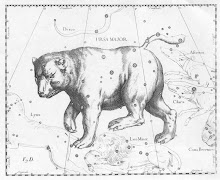To students and faculty across many of our INSGC affiliates,
it's "Welcome (Back)" week as classes are starting up. Students return to campus carrying lots
of items, new and old, that they have collected or enjoyed over the
summer. This past Friday, Seth
Baklor of Purdue came by the INSGC Office with a fairly unusual item that he
was carrying around, visibly proud and thrilled despite the weight. Seth's burden was a happy one: the
Purdue IEEE entry in the Marine Advanced Technology Education 2012
MATE Remotely Operated Vehicle (ROV) International Competition held June 21—23
in Orlando, FL. The Purdue MATE
ROV entry, nicknamed "PotaTOS", was one of our project awards in
2011-12; we were initially introduced to each other based on an INSGC awareness
survey of students on the Purdue campus regarding our programs, scholarships,
and other awards. (INSGC
provided a supplemental award to
the team in 2010-11 to support their strong performance at NASA Johnson Space
Center.)
This year, the PotaTOS ROV could be seen as a clearly
superior vehicle. Seth could
fairly easily, if somewhat awkwardly, carry the 35 pound vehicle himself. Compare that to other teams whose
vehicles rival me in weight (over 150 pounds). The interdisciplinary team concept allowed the team to
incorporate multiple innovations, efficiencies, and capabilities. At the 2012 competition, Purdue was
able to outperform in the water amid an international "pool" of
competition (not unlike another Purdue
product, David Boudia). Overall,
PotaTOS
came in second in the Explorer (primarily University) Class, finishing behind
only a team from Vladivostok, Russia.
(Seth reported that they only came in second because of a missed step in
the mission execution.) In
addition, Seth also won one of the competition's two "MVP" awards—funny,
but he forgot to mention that when he stopped by to visit.
Seth's enthusiasm and excitement for a job well done, doing
something he loves and enjoys with an explorer's passion, was definitely a
reminder to me of why we at INSGC support student project teams. The students can learn more in such a
project about teamwork, meeting real-world challenges and requirements, and
recognizing that performance trumps excuses and finger-pointing, EVERY
TIME. I'm exceptionally proud of
the team, and pleased for something else that Seth said: their successes
wouldn't have been possible without the support of INSGC. That helps me demonstrate my enthusiasm
and excitement for our job, and supporting others' passion with our own. Thank you, Seth, for reminding me why
we do this work. (Why else would I
be doing the fist pumping?) I might also point out that the other MVP award winner
was from Arizona State—Emily McBryan,
team lead of a robotics effort supported by Arizona Space Grant. Clearly, Space Grant is doing something
to help invigorate and enable education and professional development of the
next generation of STEM professionals and leaders. While it's unlikely that Purdue and Arizona State will be
meeting on the football field this season, here is a source of bragging rights
for the coming year. I can only
hope that other Space Grant consortia get involved in the effort and fun.
PotaTOS in the water
PotaTOS in the water





No comments:
Post a Comment